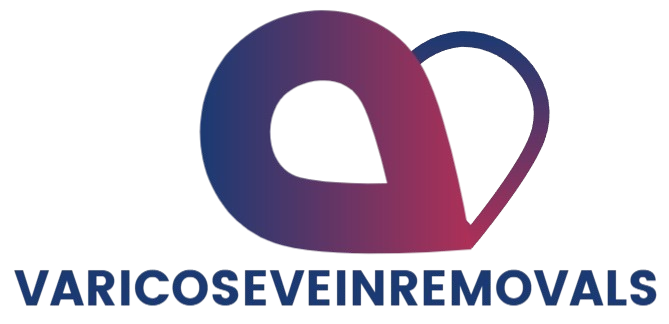In the evolving landscape of digital health, one solution is gaining considerable momentum—custom medication management apps. These personalized digital tools are changing how patients manage their medications, offering features far beyond simple reminders. With a strategic blend of technology, personalization, and patient-centric design, these apps are tackling the widespread challenge of medication non-adherence head-on.
Understanding the Problem: Medication Non-Adherence
Medication non-adherence is a silent crisis in healthcare. Nearly half of all patients with chronic conditions fail to take their medications as prescribed. The consequences are severe—worsening health, preventable hospitalizations, and staggering healthcare costs that surpass $100 billion annually in the United States alone. For individuals managing complex regimens, especially the elderly or those with chronic conditions, the issue becomes even more pronounced.
Forgetfulness, misunderstanding dosage instructions, and the overwhelming nature of juggling multiple prescriptions are common culprits. But digital innovation offers a lifeline, and custom-built apps are emerging as powerful allies in supporting adherence and improving outcomes.
The Power of Customization
Generic medication reminder apps offer basic functionality, but custom apps go several steps further. Designed with the needs of specific patient populations in mind, these tools are built to reflect real-world scenarios and provide a tailored experience.
Multilingual support ensures that language barriers don’t get in the way of care. Smart reminders are adjustable, persistent, and even include voice prompts or visual aids for patients who need them. These thoughtful features make the experience user-friendly and accessible—keys to ensuring consistent use.
Moreover, custom apps can integrate directly with electronic health records (EHRs), ensuring that reminders, dosages, and medication plans align perfectly with a patient’s prescribed treatment. Providers can monitor usage in real-time, identify patterns of non-adherence, and intervene early to prevent complications.
Key Features Redefining Medication Adherence
Modern custom apps offer a robust set of tools to transform how patients engage with their medications:
- Intelligent Reminders: Timely notifications adapted to a patient’s lifestyle help prevent missed doses. Customization ensures the system works with the user—not against them.
- EHR Integration: Linking to health records enables personalized tracking and improves coordination with healthcare providers.
- Reporting and Analytics: Detailed insights into adherence trends and medication use empower both patients and providers to make informed decisions.
- Secure Messaging: Direct communication between patients and healthcare teams improves responsiveness and builds trust.
- Caregiver Support: Shared access allows family members or caregivers to stay informed and involved in the care process.
These features create a comprehensive digital ecosystem—one that encourages engagement, reduces the risk of errors, and streamlines care delivery.
Real Benefits for Patients and Providers
The impact of these apps reaches far beyond convenience. For patients, they foster confidence, independence, and a greater sense of control. Being able to understand and manage one’s own treatment regimen—especially when living with chronic conditions—can be empowering.
Healthcare providers, meanwhile, benefit from improved communication, more accurate data, and fewer emergency interventions. With adherence data readily available, clinicians can tailor care plans more effectively, improving outcomes and reducing the overall cost of care.
Building a Custom App: The Roadmap
Developing a successful medication management app is a thoughtful process that balances innovation with empathy. It begins with deep user research to uncover pain points and usability barriers. From there, developers must prioritize intuitive design, seamless functionality, and compliance with healthcare regulations such as HIPAA or GDPR.
A key factor in the success of these apps is the ability to evolve. Regular updates based on user feedback—both from patients and healthcare professionals—ensure that the solution remains relevant and responsive. Partnering with healthcare-focused development firms helps ensure that the app isn’t just technically sound but also grounded in clinical best practices.
Future Forward: What’s Next?
The next frontier for medication management apps is powered by cutting-edge technologies:
- Artificial Intelligence (AI): AI can predict non-adherence by analyzing behavior patterns and suggest interventions before problems arise.
- Wearable Integration: Syncing with smartwatches and fitness trackers allows for effortless, real-time monitoring of medication intake and vital signs.
- Blockchain Security: Blockchain introduces a tamper-proof way of managing medical data, ensuring transparency and trust in medication records.
These innovations signal a shift toward hyper-personalized, data-secure, and seamlessly integrated digital health ecosystems—ones that elevate the standard of care and engage patients in entirely new ways.
A New Era in Medication Management
Custom medication management apps are more than just a convenience; they represent a shift toward personalized, technology-driven healthcare. They empower patients, streamline provider efforts, and bring clarity to what has long been a fragmented process.
As digital health continues to mature, custom apps will play an increasingly vital role in bridging gaps in care, improving outcomes, and reducing costs. By combining innovation with empathy, they offer a vision of healthcare that is not only smarter but more human.
In this new era, managing medication doesn’t have to be complicated. With the right digital tools, it can become second nature—helping millions lead healthier, more supported lives.



